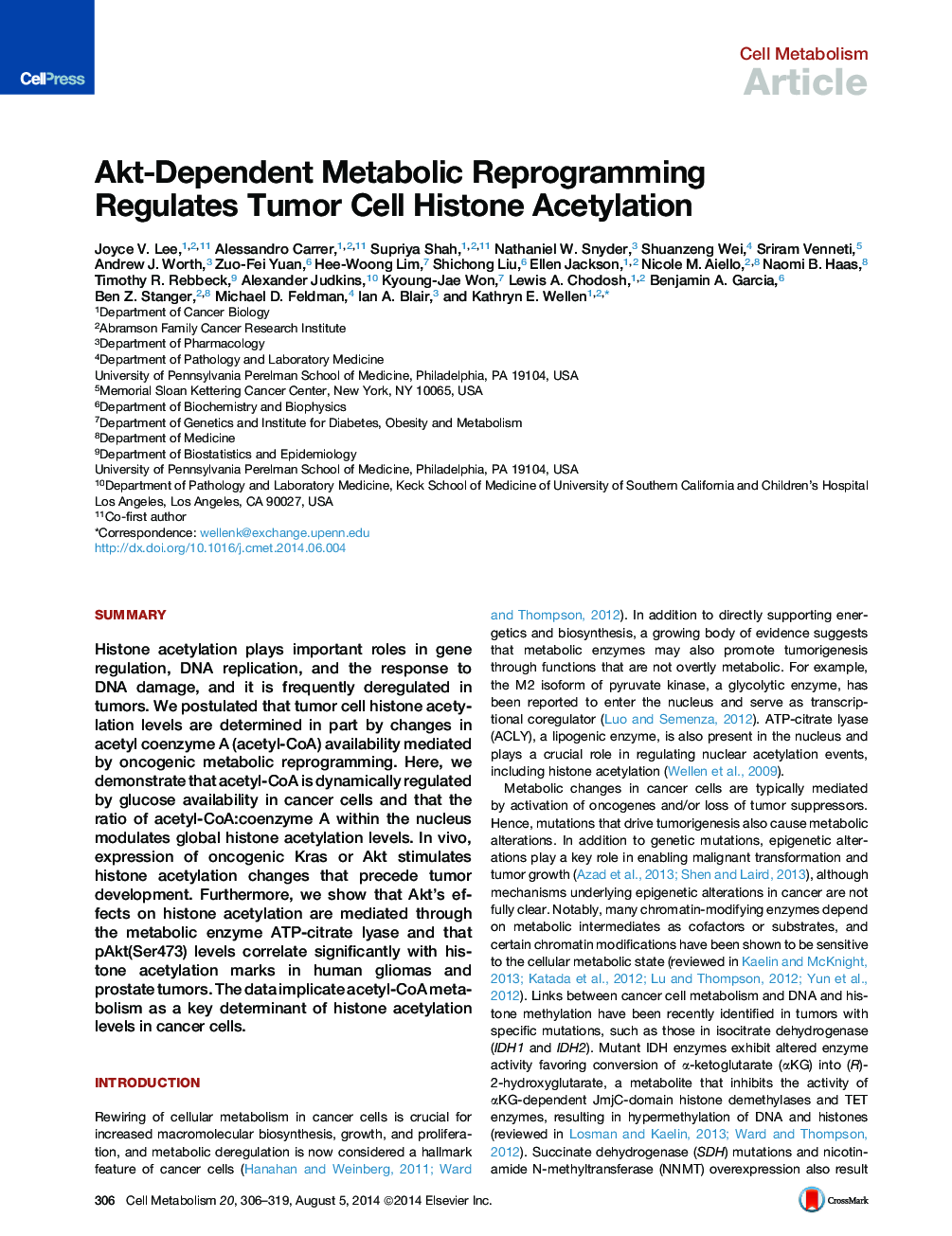| Article ID | Journal | Published Year | Pages | File Type |
|---|---|---|---|---|
| 2792607 | Cell Metabolism | 2014 | 14 Pages |
•Acetyl-CoA:CoA ratio is glucose sensitive and regulates histone acetylation levels•Oncogenic AKT expression promotes elevated histone acetylation in vitro and in vivo•ACLY phosphorylation by AKT enables sustained histone acetylation in low glucose•Histone acetylation and pAKT(Ser473) levels correlate significantly in human tumors
SummaryHistone acetylation plays important roles in gene regulation, DNA replication, and the response to DNA damage, and it is frequently deregulated in tumors. We postulated that tumor cell histone acetylation levels are determined in part by changes in acetyl coenzyme A (acetyl-CoA) availability mediated by oncogenic metabolic reprogramming. Here, we demonstrate that acetyl-CoA is dynamically regulated by glucose availability in cancer cells and that the ratio of acetyl-CoA:coenzyme A within the nucleus modulates global histone acetylation levels. In vivo, expression of oncogenic Kras or Akt stimulates histone acetylation changes that precede tumor development. Furthermore, we show that Akt’s effects on histone acetylation are mediated through the metabolic enzyme ATP-citrate lyase and that pAkt(Ser473) levels correlate significantly with histone acetylation marks in human gliomas and prostate tumors. The data implicate acetyl-CoA metabolism as a key determinant of histone acetylation levels in cancer cells.
Graphical AbstractFigure optionsDownload full-size imageDownload high-quality image (252 K)Download as PowerPoint slide
